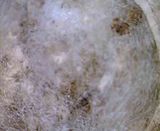- Joined
- Jul 4, 2005
- Messages
- 8,982
I was on my mountain bike and saw an argiope eggsac, I would've left it there but I wanted to check to see if the slings survived the winter temps here. It got down into the mid teens here. How do they keep from freezing in there? My reasoning might be wrong but isn't it no warmer in there than a blanket? People say, "This blanket is really warm, but it's literally not warm, you heat it up with your body heat, the ones that hold the heat better that's generated by our bodies are the ones we call "warm". Spiders don't generate their own heat to heat up the sac, so how do they keep from freezing? Or do they have some kind of natural anti-freeze when that young, or when they are eggs? Click on the pic for a vid if you want to see them crawling around.


